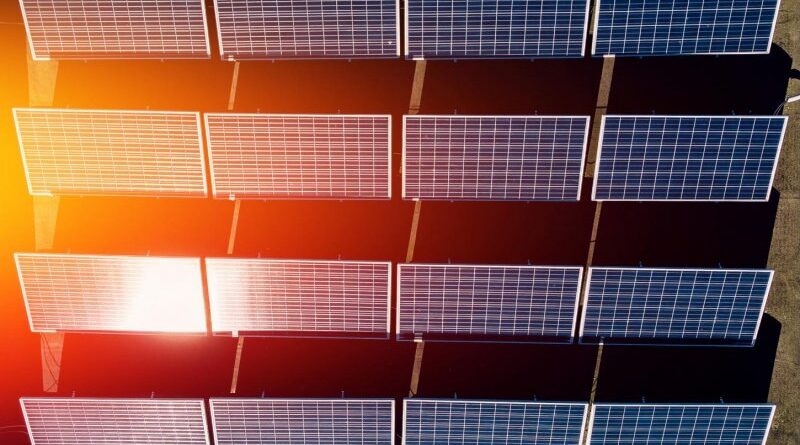Joint initiative touts sustainable living
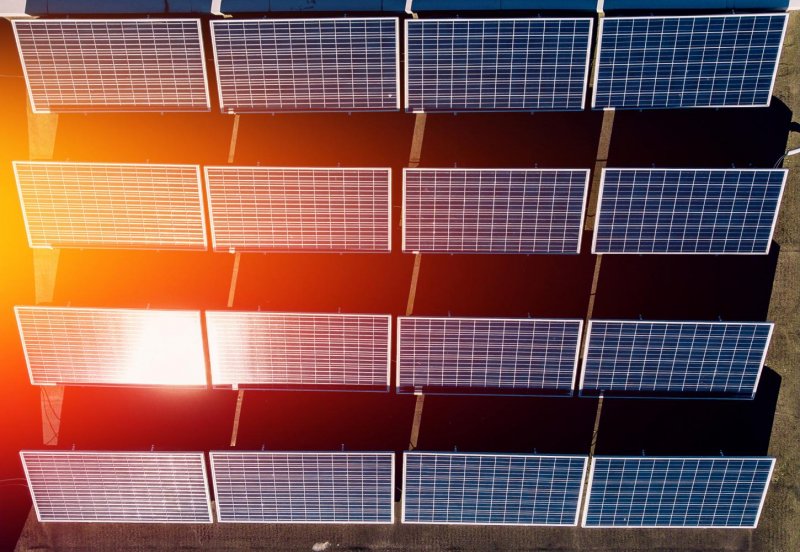
Consumers have the power to drive sustainability through their spending choices, especially when it comes to home products and energy use.
Leading businesses in energy, construction and retail are introducing innovations that make sustainable living more practical, affordable and impactful.
To accelerate this transition, Krungthai Card (KTC), government agencies and private partners launched the forum “Power from Home, Power for the Future”, an initiative aimed at promoting clean energy adoption in Thai households.
Supported by Gulf Development, Siam Cement Group (SCG) and Home Product Center (HomePro), the effort highlights how households, businesses and policymakers can work together to shape a greener, low-carbon future.
Solar power
During the panel discussion, Charuwan Phipatana-phuttapanta, senior professional scientist and head of the monitoring and evaluation group at the Department of Alternative Energy Development and Efficiency, noted Thailand’s target of achieving carbon neutrality by 2050, with renewable energy expected to make up 50% of the country’s energy mix by 2037.
“Household participation is crucial — every home is a foundation for change,” she said.
“Sustainability is no longer something we should do, but something we must do. It means affordable energy and a better quality of life.”
Government energy policy needs to align environmental and economic priorities, creating shared value for consumers, businesses and communities, said Ms Charuwan.
The government is committed to supporting household solar adoption by enhancing safety standards, streamlining permit processes, offering tax incentives and providing public education for both technicians and consumers, she said.
According to the Energy Policy and Planning Office (Eppo), Thailand’s electricity consumption reached 210 billion units in 2024, up 5.3% year-on-year, with peak demand hitting 36,792 megawatts in May, a 5.6% increase.
Household electricity use rose sharply to 62 billion units, a 67% year-on-year jump.
Ms Charuwan projected total electricity consumption to reach 220 billion units this year.
With demand rising, the government continues to promote household solar adoption through rooftop installation incentives.
Energy authorities are also considering expanding power purchases from households as part of efforts to increase clean energy use and accelerate the installation of solar panels nationwide.
Under the 2022 household solar scheme, the government allows the Metropolitan Electricity Authority to purchase electricity at 2.20 baht per unit through a 10-year contract, in line with the Eppo framework.
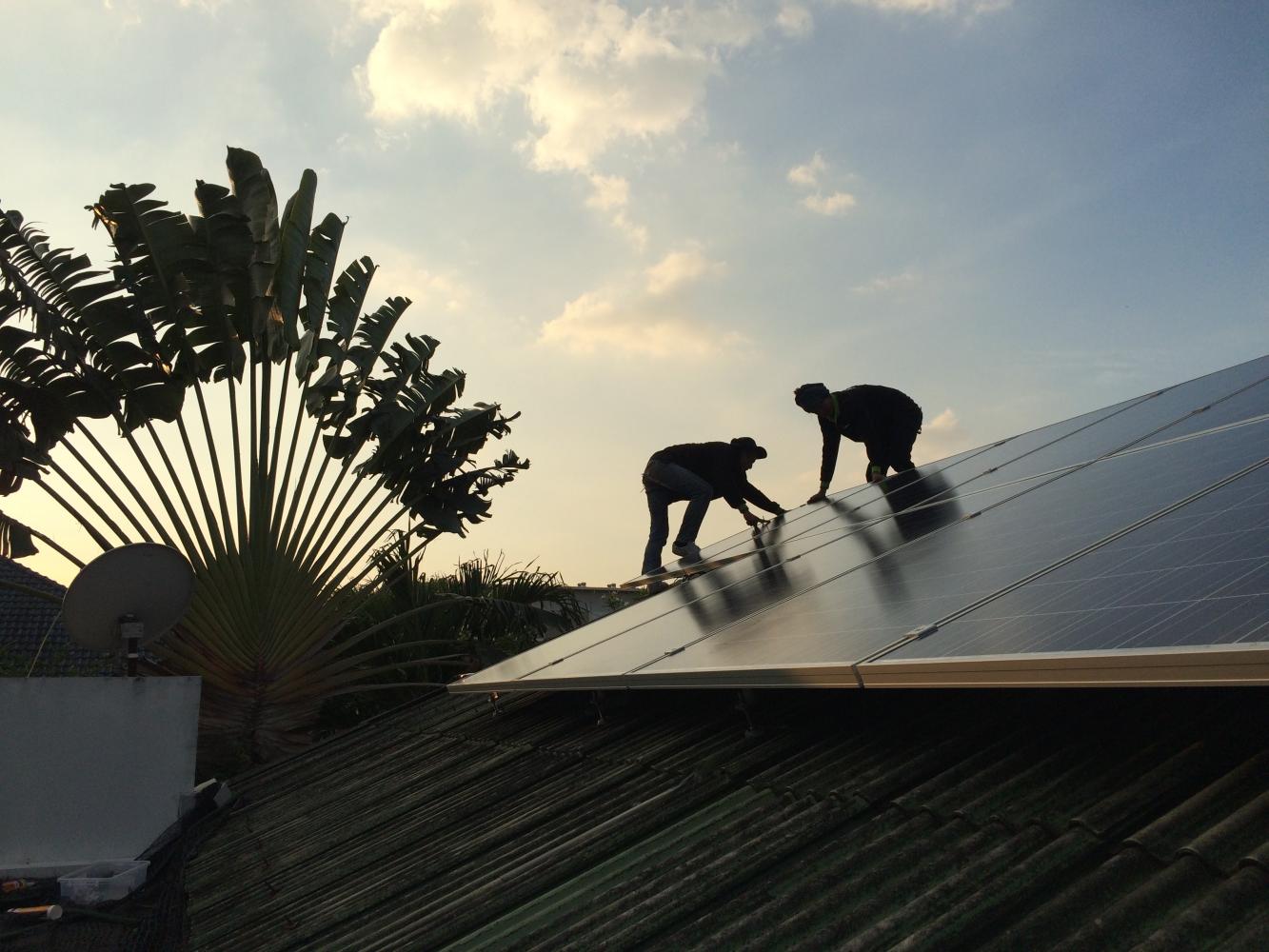
Workers install solar panels on a house. Weeraboon Wisartsakul
Green housing
The private sector across various industries is joining forces to build a sustainable ecosystem that supports Thailand’s transition to a green economy, particularly businesses in housing-related sectors that are closely connected to consumers.
Gulf, Thailand’s largest energy company by market value as well as a major telecom operator and leader in alternative energy, is supporting the country’s transition to a green economy by promoting solar power adoption.
The company set a target to increase renewable energy to more than 40% of its total capacity by 2035, and achieving net-zero greenhouse gas emissions by 2050.
In line with this commitment, Gulf launched GULF1 and introduced its solar brand One Sunday to expand access to solar energy, said Amnuayporn Prakobnoppakao, executive vice-president for solar business.
She said the initiative provides a clear roadmap to make rooftop solar a “simple decision” for households — offering trusted safety standards, certified installation and real-time monitoring of electricity savings.
“One Sunday is not only a solar solution — it makes every day at home feel like a Sunday or family day, free from the worry of rising electricity costs,” said Ms Amnuayporn.
To expand access, GULF1 partnered with Advanced Info Service (AIS) for distribution through AIS shops nationwide, and with KTC for flexible financial solutions that make solar rooftops both practical and cost-effective.
She said Gulf is committed to delivering safe, reliable and value-driven solar energy for Thai households.
SCG, another Thai conglomerate, is driving sustainable living through its Onnex brand under the smart living concept.
Krirk Yimpronpipatpon, director of smart living at SCG Living and Housing Solution, said the Onnex platform integrates solar power, cooling and air purification systems, all connected through the Smart Living Plus app to craft homes that are both sustainable and intelligent.
The Onnex platform goes beyond technology, enhancing the quality of life in Thai households while reducing carbon emissions, he said.
SCG has been a pioneer in climate-focused solutions, starting decades ago with the introduction of heat-reducing corrugated roofing products, Mr Krirk noted during the panel.
“With artificial intelligence-enabled smart services on Onnex, the app can even recommend the best time to iron clothes — when the energy supply from rooftop solar is available,” he said.
Sustainability is no longer a luxury, but a new cost framework for modern homes, said Mr Krirk.
Energy-efficient systems not only lower electricity bills, but also enhance indoor air quality and comfort.
SCG has pledged to achieve net-zero emissions by 2050, guided by strong environmental, social and governance principles.
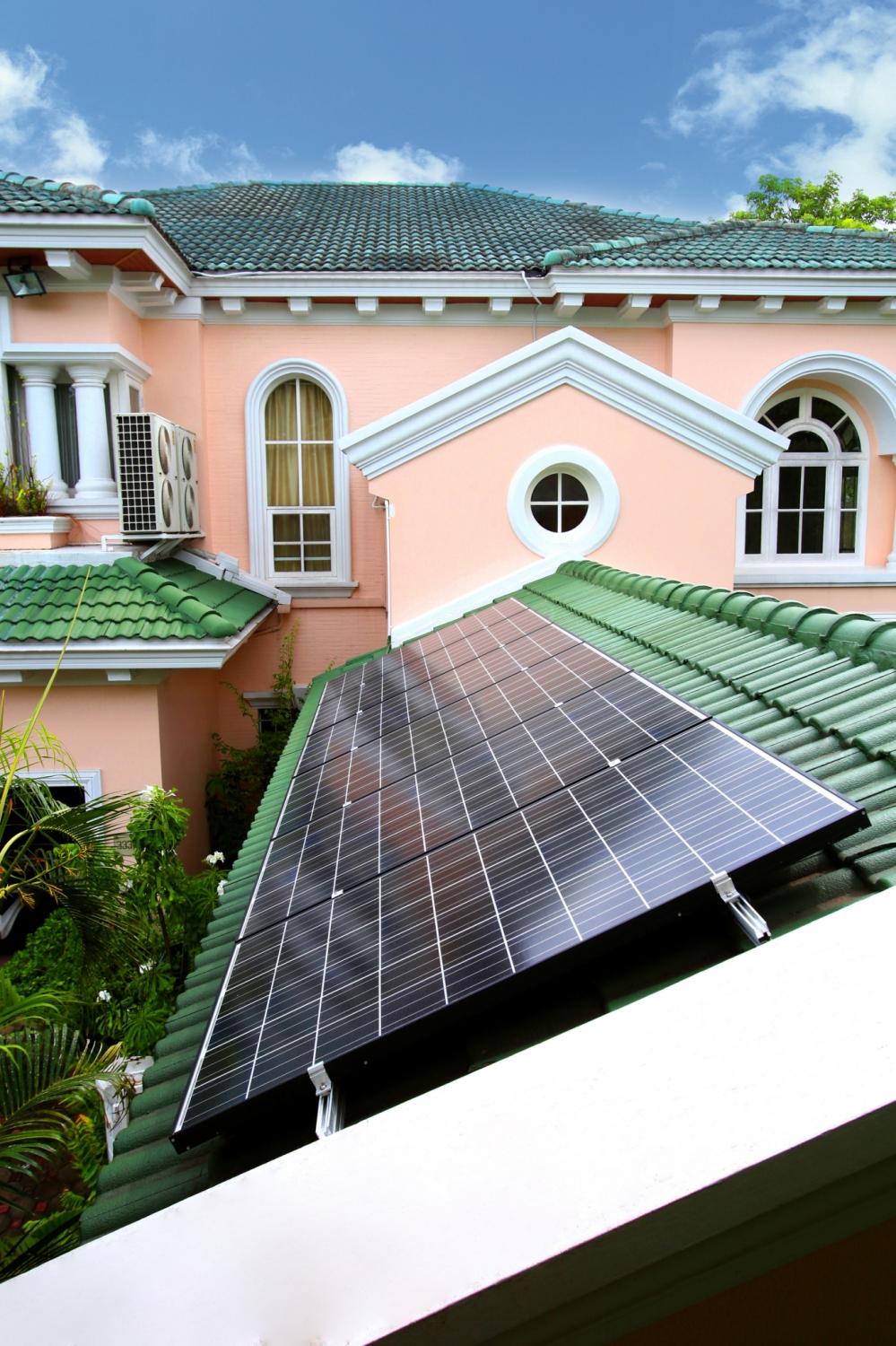
Solar panels line the rooftop of a housing project.
Waste trade-in
Home products and furniture are key components of the residential sector, and HomePro, the country’s leading home decor retailer, plays a pivotal role in advancing the green housing ecosystem.
Rakpong Aroonwatdhana, senior vice-president of investor relations, strategy and sustainability at HomePro, highlighted the company’s “Trade-In” campaign as a cornerstone of its sustainability mission.
Through the programme, consumers can bring in old or unwanted household items — such as broken electrical appliances or furniture — and receive discounts on new purchases. The initiative not only makes it easier for households to dispose of bulky waste, but also reduces the environmental impact across the supply chain by promoting circular product design, clean energy use and responsible waste management.
“For many consumers, it’s not easy to handle large discarded items such as refrigerators or sofas. Our Trade-In campaign supports waste management while advancing sustainability,” said Mr Rakpong.
The programme has collected more than 300,000 used appliances, which are processed into new circular products. Looking ahead, HomePro plans to expand its sustainable product range with more than 8,000 new items and aims to generate 20% of total sales from sustainable products by 2030.
By connecting manufacturers and consumers, the company serves as a bridge in the circular economy for households, he said.
Sustainable consumption
Nattasit Soontranu, head of credit card marketing at KTC, said the company’s commitment to integrating sustainability across its operations aligns with evolving consumer expectations, while maximising long-term social value.
KTC has reduced more than 110,000 kilogrammes of carbon emissions — the equivalent of planting over 12,000 trees — through initiatives such as fully digital shareholder meetings and the adoption of e-applications, e-statements and e-payments, he said.
The company is also building a clean energy ecosystem through its “Save You, Save the World” campaign, said Mr Nattasit.
The campaign offers cardholders 0% instalment plans, cashback and exclusive deals on solar rooftops, energy-saving appliances and home improvement products, allowing households to cut their carbon footprint while enjoying long-term savings and improved quality of life.
As a result, KTC credit card spending in the home and furniture category has grown steadily year-on-year, with an increasing number of customers choosing sustainable options.
“Beyond monthly savings, the ultimate goal is to create lasting positive impact — where energy-efficient homes enhance family well-being and contribute to a sustainable, low-carbon society,” he said.
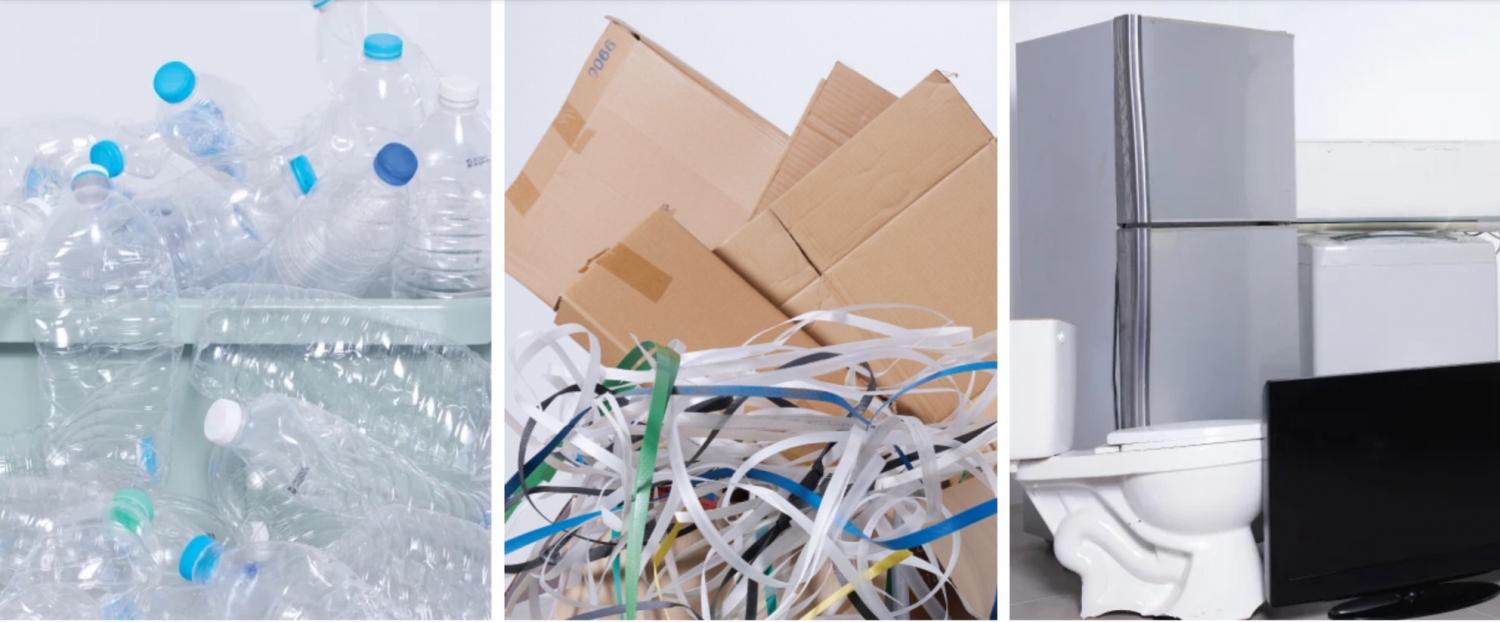
The campaign seeks to build a circular economy.
Source – Bangkok News

